In a strange way, most of the good things in my life can be traced back to Rhett Miller. Not only was the band he fronts, Old 97’s, one of my key entry points into the world of alt country, but, by virtue of his commitment to selecting the best in up-and-coming artists with whom to tour, he introduced me to three of my other favorites in the genre: Ha Ha Tonka, Those Darlins, and David Wax Museum. All four have been featured prominently on this site over the years. In fact, 2011’s Death of a Decade by Ha Ha Tonka was the very first No Surf Review. And from that provenance, it was the connections made in the Americana world, both professional and social, that inspired me to buy a camper van, go out on the road, and discover as much of this country and its musical tapestry as I could. As I write this, I’m sitting more than 500 miles from my hometown on an entirely different coast, the tangy aroma of onions wafting from the kitchen propelled on the gentle breeze of a 12-inch, 3-speed, oscillating fan, sprawled out on a couch belonging to a musician & friend I never would have met if not for those cascading impeti. So, seen from the quantum cosmic pool game perspective, I even owe tonight’s dinner to Rhett.
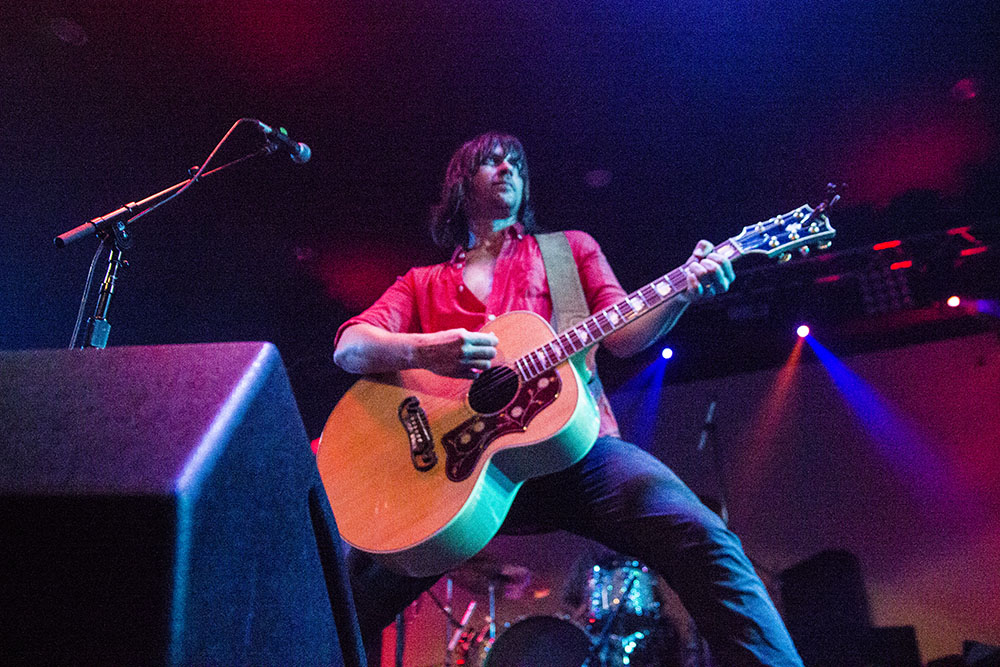
Yeah, this epic looking son of a bitch. Who is not actually the subject of this article. Rhett Miller of Old 97's performs at The Cave in Big Bear, California, 4/1/17. Photo by Jason D. 'Diesel' Hamad/No Surf Music.
In the past that is prologue—a decade ago, give or take—I headed to Cleveland’s Beachland Ballroom to see the 97’s play. Then, as now, they were one of the most powerful, raucous, and entertaining bands in alt country. I’d seen them many times before and have many times since, but this night was notable because for the first time, I saw the Old 97’s just absolutely, positively, hands-down, no-doubt-about-it, why-even-bother-taking-the-stage obliterated by an opening band. It was a foursome from West Plains, Missouri called Ha Ha Tonka, so freshly signed to Bloodshot that their debut album hadn’t even been printed yet and they had to hand out flyers after the show, hoping a few of the attendees might purchase a copy when they finally hit the stores. From the moment the band started their foot-stomping, hard-rocking, sweat-soaked, from-mountain-peak-to-valley-floor performance, I was hooked. All these years later, after experiencing dozens of their powerful concerts, I can still feel the reverberations of the first time I heard frontman Brian Roberts spit out his most memorable of lines, “This glimpse of brilliance is far better than your long look at mediocrity,” followed by a barbaric yalp that could only come from a boy raised among the rolling green Ozarks.
This spring, the two bands reunited for a West Coast tour backing their new releases—Graveyard Whistling for the 97’s and Heart-Shaped Mountain for the Tonk. And it happened again. At the Cave in Big Bear, California—ten years, twenty-three hundred miles, and 7,000 feet in altitude from that initial show—I witnessed Ha Ha Tonka deliver the same kind of ebullient, brash, vigorous, gleeful performance—one the Old 97’s just couldn’t match, even when it started snowing onstage in the middle of their set. It took some time, but lightning struck twice.
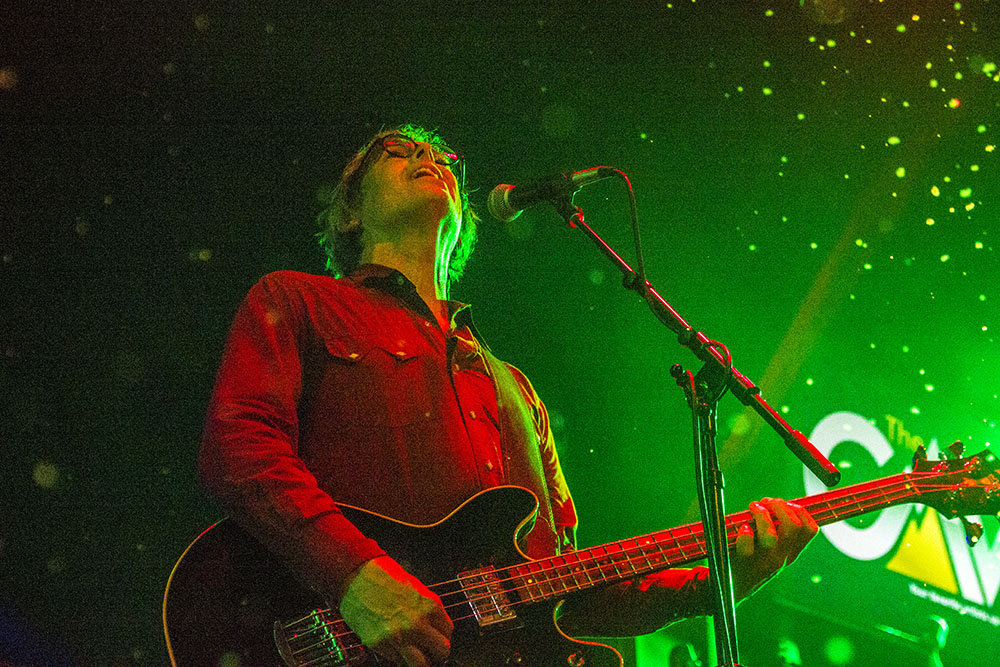
You think I'm lying about the snow? Yeah, Murry couldn't believe that shit, either. Murry Hammond of Old 97's performs at The Cave in Big Bear, California, 4/1/17. Photo by Jason D. 'Diesel' Hamad/No Surf Music.
As a band and as individuals, I’ve watched Ha Ha Tonka evolve since that first night in Cleveland. They’ve always been alt country heavy on the alt, but they’ve tempered some of their early, exuberant edge in favor of more refined, multi-layered compositions. The lineup itself has changed, with drummer Lennon Bone leaving in favor of Hoots & Hellmouth’s Mike Reilly and the addition of the Spring Standards’ James Cleare as a fifth member on keys and guitar. And, of course, they’ve aged, passing from the fresh-faced optimism of early adulthood into the wizened weariness of seasoned road warriors.
Perhaps that evolution helps explain why my connection with the band has remained so strong. In a way, we’ve grown up together. Roberts, the group’s chief lyricist, is one of those self-analyzing poets, and his compositions often reflect milestones on the winding path of his life. 2007’s Buckle in the Bible Belt, for instance, focused on the pleasures of youth and stories from the members’ mountain upbringing, while 2011’s Death of a Decade was more focused on evolution into the slow roll of adulthood. This time around, says Roberts, “We started out writing Heart-Shaped Mountain with the goal in mind of creating a 10-song album, about 33 to 35 minutes in length, that attempted to honestly reflect what it’s like to be in your mid-30s.”
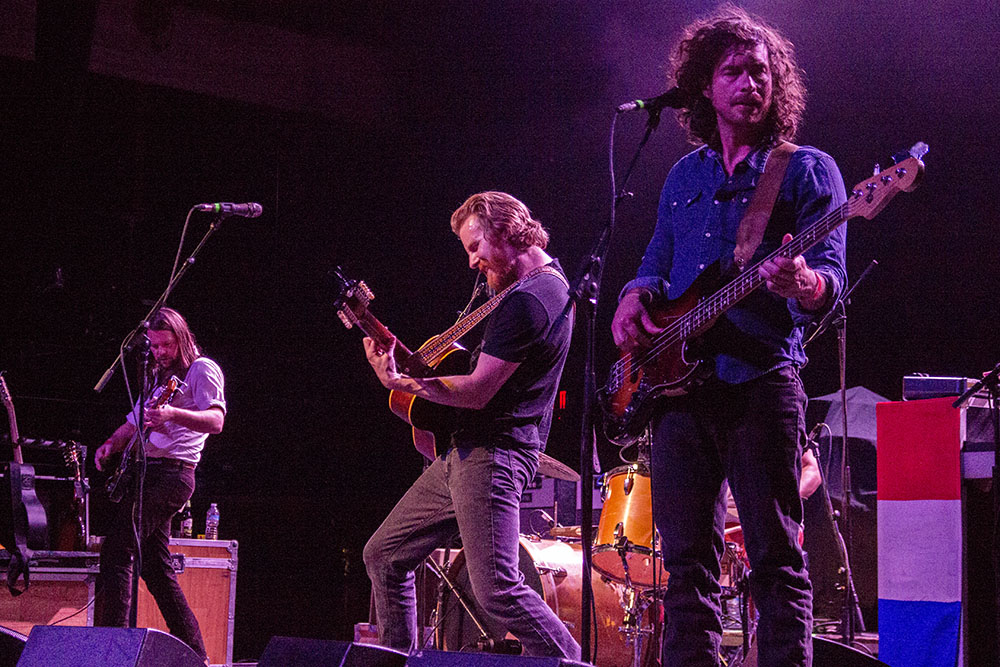
Yeah, these are the guys this article is about. The three remaining original members of Ha Ha Tonka (l-r), Brett Anderson, Brian Roberts & Lucas Long, peform at The Fonda Theatre in Los Angeles, CA, 3/30/17. I would like to point out that while they have aged considerably over the last decade, I have retained my youthful glow. Photo by Jason D. 'Diesel' Hamad/No Surf Music.
The original vision for a relatively stripped down live-recorded throwback to their earlier days was scrapped when what Roberts describes as “a bizarre set of circumstances” at their studio led to the loss of their early recording sessions. He explains “while I wouldn't recommend it due to the initial stress of losing a week's worth of work, losing the album a week into recording it wound up being the best thing that could have happened to us.” Rather than a catastrophe, he says, it was “a blessing in disguise. We had a lot more time to think about the songs and where they were going, revisit the tunes, be more honest with one another about what shape they could or should take and then we got back to work. In the end, it was actually somewhat liberating... or maybe we just went through all the five stages of grief.”
In its final form, the album pulls back a bit from the complexity of 2013’s Lessons, but still builds on the basic recipe of harmonized vocals, sonic layering, and rock styling with an undercurrent of country that the band realized in Death of a Decade, and is much more similar sonically and stylistically to those releases than their earlier works.
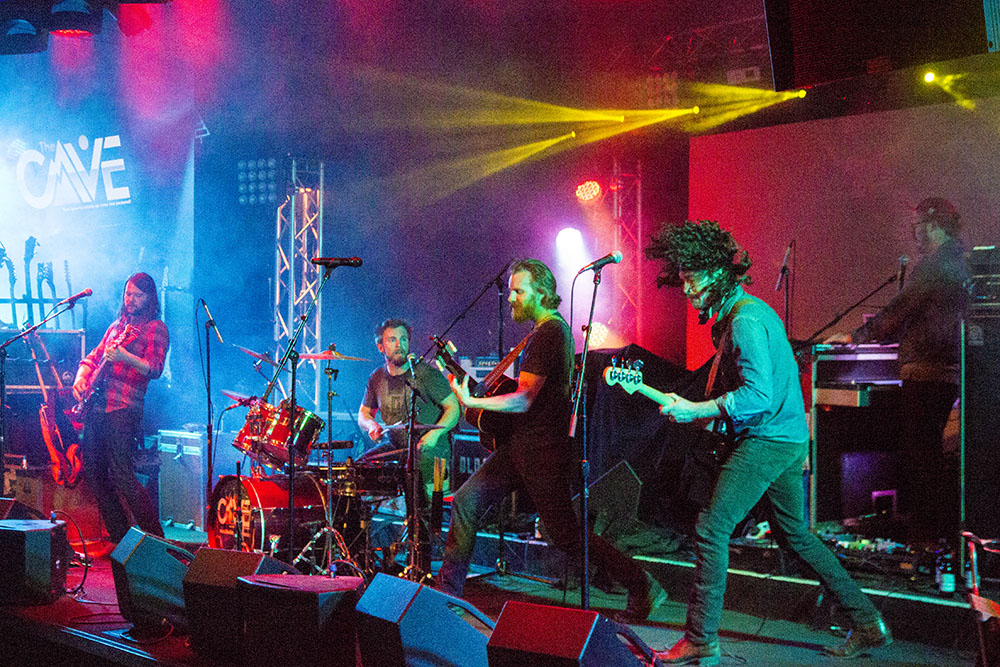
Ha Ha Tonka peform at The Cave in Big Bear, California, 4/1/17. The lineup for this album included two newcomers who left their marks on the studio sessions and helped reinvigorate the band's always lively stage shows. Mike Reilly is center-left on drums, while James Cleare is far right on keys. Photo by Jason D. 'Diesel' Hamad/No Surf Music.
One strain that has remained the same throughout their progression, however, is Roberts’ unique penchant for writing philosophical party songs. It’s not that either cerebral or boisterous songs are so rare, but Roberts’ particular blending of the two so frequently is unique. Past examples include Buckle in the Bible Belt’s“St. Nick on the Fourth in a Fervor,” Novel Sounds of the Nouveau South’s “Open Every Valve to Your Bleeding Heart,” Death of a Decade’s “Usual Suspects,” and Lessons’ “Terrible Tomorrow.” Each is nominally set in an atmosphere of carousal, but the backdrop belies the deeper examination taking place in its midst. On this album, “Race to the Bottom,” “The Party,” and “Arkansas” all qualify, as perhaps do “Everything” & “Telluride,” depending on your definition of party.
“I guess I'm just a philosophical party animal,” Roberts explained when asked about this tendency. “Some of the most interesting conversations I've ever had have occurred at various parties over the years. I'm guessing it's because of the drugs.”
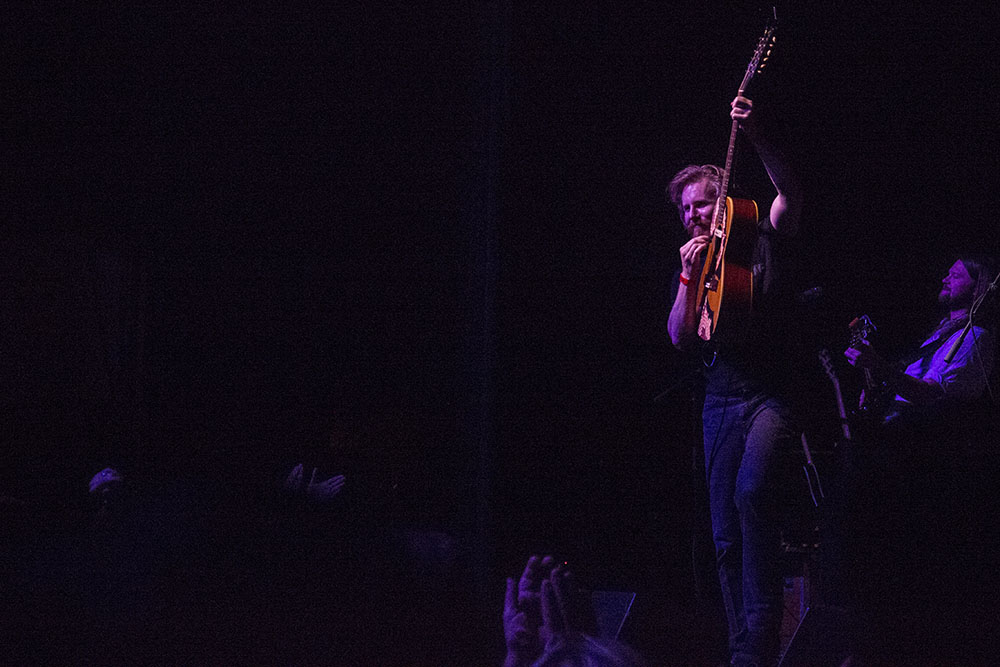
Philosophical party animal? Well, this is the guy who once said, "Thoreau in the woods just don't do us no good / When we're acting up." Ha Ha Tonka peform at The Fonda Theatre in Los Angeles, CA, 3/30/17. Photo by Jason D. 'Diesel' Hamad/No Surf Music.
Examine the leadoff track “Race to the Bottom.” Opening with emphatically plucked electric guitar, it expands into wide, arm-swinging fuzz as Roberts steps into the first verse. The insistency returns with the five-voiced chorus, bassist Lucas Long holding down the low end of the harmony while the others spread seamlessly to the high notes. The track portends the roller coaster ride upon which the listener is strapped as cosmically resonant open spaces are pumped slowly uphill until the song reaches the halfway point and gravity takes over, riding ever more recklessly toward the big scream at the end.
And it is a classic example of a Ha Ha Tonka philosophical party song:
Every night has its moments.
You pick and you choose.
This one or that one? Oh, you’re a natural.
You can’t lose.
One more shot for my courage,
Two for my pride;
Three shots I’m empty.
I feel alive tonight.
Though accompanied by a video featuring the band taking a summertime float down the Spring River near Mammoth Springs, Arkansas, the album’s first focus track “Everything” is more purely reflective—wistful in an uptempo kinda way. It features that other Roberts writing staple, reexamining life at each of its stages as he passes through them:
Like the summer that you told me that we’d never get old.
Campfire smoke when you started getting’ cold.
You were falling in love for the very last time.
Everything that’s happened in your life…
And I hope it was
Everything you thought it would be.
Holdin’ onto you; you were holdin’ onto me.
A picture of the past and the future that you see,
Is it everything you thought it would be?
In the richness of Roberts’ voice, you can hear each of these vignettes trigger memorialized emotion, phantasmal nostalgia hinting at the greater significance underlying the story. The specificity of the writing makes it universal, and like Socrates, he asks the question so that the listener might reach his own understanding.
Given its name, it’s no wonder “The Party” hits the nail right on the head of this class of songs. Here, Roberts examines his own place in life by pairing himself with a fellow traveler on the road less taken:
Now everyone you know is havin’ kids.
And you can’t remember all the new names.
But you try to remember all the new names.
The people around us said that it was gettin’ late.
The people around us said that they were goin’,
But before we knew what happened, life it couldn’t wait.
Oh, why do we always seem to be the last ones at the party?
With its whistled high notes riding atop Brett Anderson’s quick-plucked mandolin, the piece seems to soar even trapped beneath the weight of Robert’s melancholic musings.
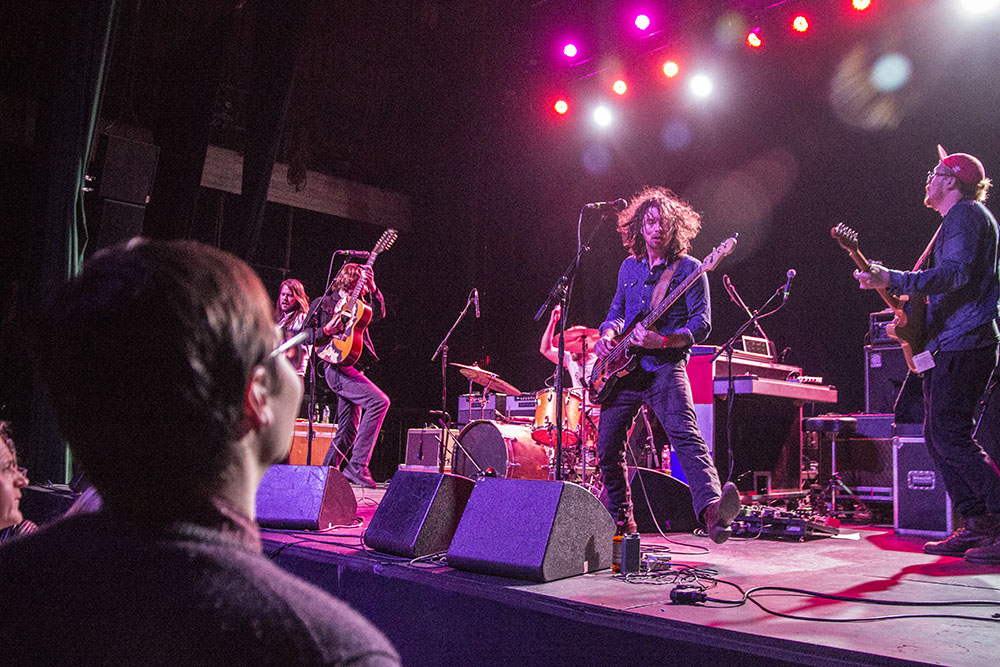
Did someone say party? Ha Ha Tonka peform at The Fonda Theatre in Los Angeles, CA, 3/30/17. Photo by Jason D. 'Diesel' Hamad/No Surf Music.
Though “Arkansas” appears on the surface to be a simple story of the customary Tonk madcap capers, in fact it asks several important moral and metaphysical questions, such as “Does what happens in Arkansas stay in Arkansas?” “Does Arkansas, in fact, exist, or is it just a repository for all the darkest thoughts of our collective subconscious?” and “Does one have a moral imperative to respect the social norms and legal restrictions anyplace south of US160?” The answers—from the Tonk perspective—are “Apparently not,” “No, you’re thinking of Mississippi,” and, “Fuck, no!”:
How you been? How’s your summer?
Of course you’ve heard the rumor goin’ around.
But the truth, it’s even better,
What we got away with and never found out.
You know we broke every law in Arkansas.
You know we broke every law in Arkansas.
You know we broke every law in Arkansas.
We only broke every law in Arkansas.
Ok, maybe that’s all bullshit. This song is just a lot of fun. Around a full sound built on blazing guitars, thunderous bass, and raucous call-and-response vocals, it captures the band’s true spirit as a group that brings the party with them wherever they go.
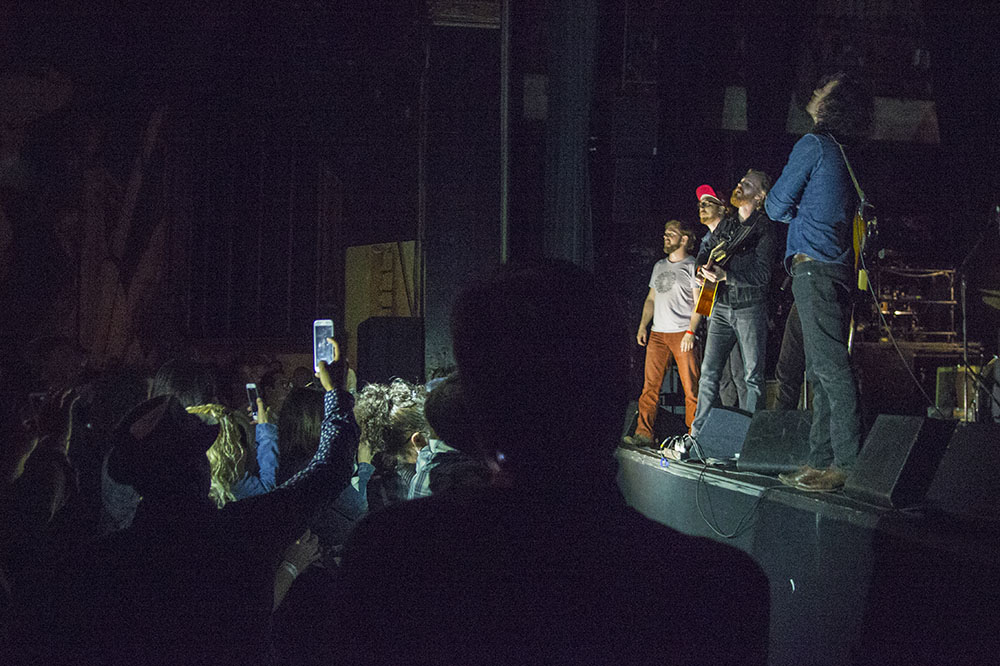
Seriously, these guys will bring the party anywhere. They don't even need electricity. When the Fonda Theatre lost power in the middle of their set, they simply performed "Hangman" a cappella by cell phone light. Los Angeles, CA, 3/30/17. Photo by Jason D. 'Diesel' Hamad/No Surf Music.
Roberts’ ethical examinations are not limited to soiree settings. With its brightly strummed acoustic guitar, spritely mandolin, and rich vocal harmonies, the laid back “Favor” showcases his pure reflective profundity. The man who previously penned a paean for Mark Twain this time tackles Thoreauvian transcendentalism:
Livin’, it ain’t easy.
Nothin’ in life is free.
If I did you a favor,
Would you do one for me?
Turn your back on the world.
Live off the grid.
Turn off your phone.
You’ll be glad that you did.
Follow your heart back home.
You know where I live.
Turn your back on the world for me
If you got a favor to give.
The fact that Roberts is making a specific plea to the listener—explicitly promoting a way of life, one simpler and less dependent on technology—sets this song apart from many of his other, more open-ended works.
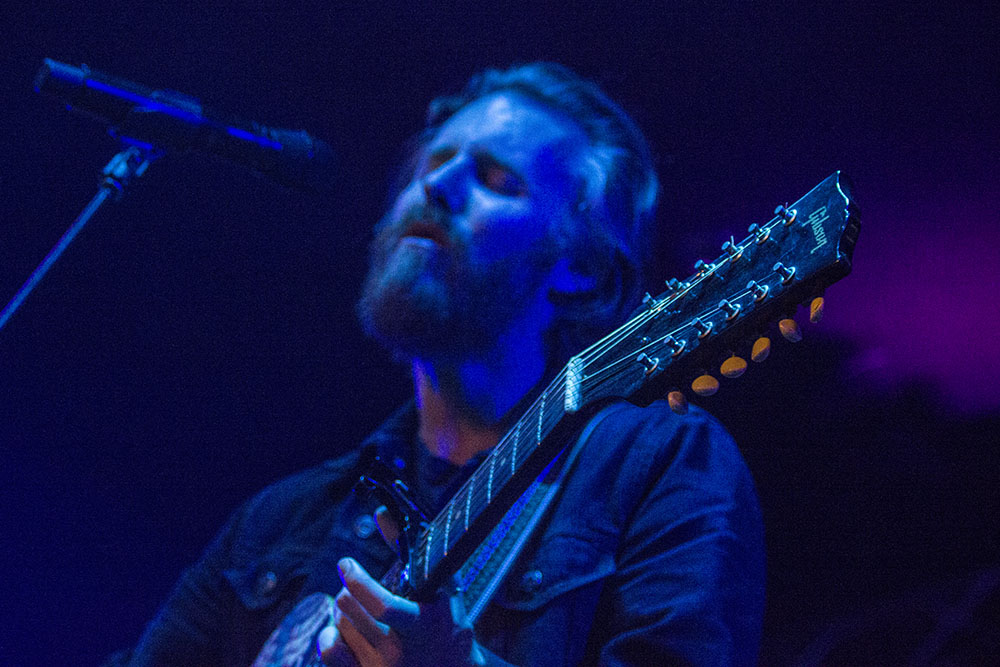
Brian Roberts all reflective and artsy and shit. The Cave in Big Bear, California, 4/1/17. Photo by Jason D. 'Diesel' Hamad/No Surf Music.
“That song really arrived as an almost complete melody & lyric idea simultaneously, which is a rarity for me,” says the songwriter, who spent much of the band’s recent two-year touring hiatus teaching in rural Tennessee. “I’m not sure where it came from, but I’m sure the Blue Ridge Mountains played some role. Unfortunately, I feel that the song is much more aspirational than it is instructional, because I'm as guilty as the next person for having my eyes glued to a screen. However, I definitely think we could all benefit from turning off our phones for a while.”
The album’s title comes via the lyrics of “Going That Way”:
An open road, my best friend,
If you don’t stop it will never end.
So take my hand.
A heart-shaped mountain ain’t the promised land.
If anyone could lead you astray,
I’m going that way.
That particularly charismatic—and characteristic—zinger couplet at the end does not obscure the fact that the essence of the passage lies in that alpine metaphor. Roberts explains that “the album title is an attempt to describe love. Love can be difficult & a little scary, but the view from the top is amazing and worth all the effort. I felt that this title, Heart-Shaped Mountain, was an appropriate metaphor to try to express that idea as succinctly as possible.”
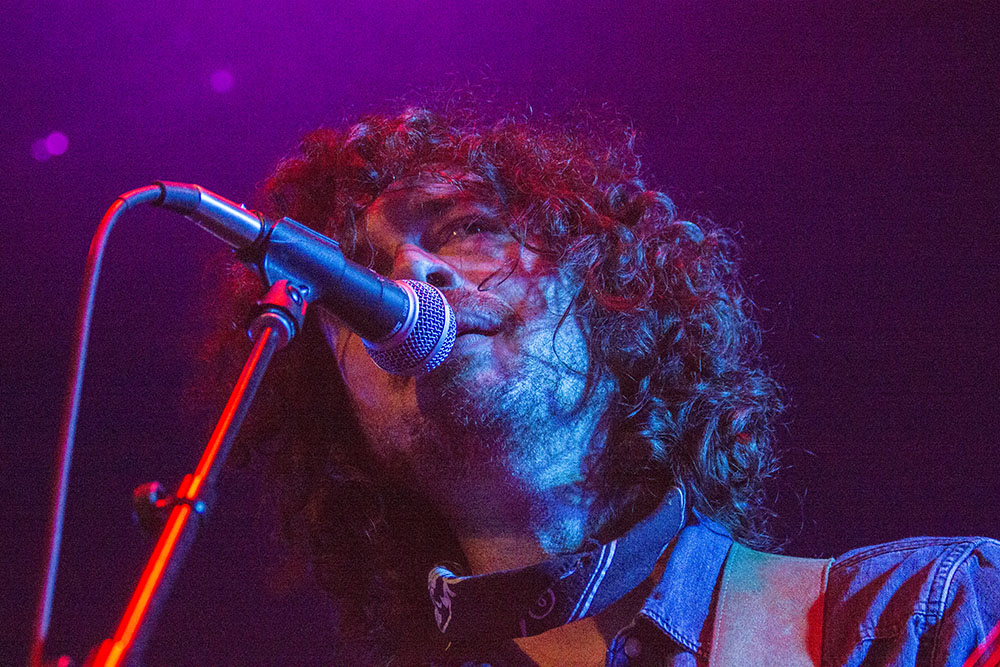
Pretty boy says he's going that way, too, if that makes a difference. Lucas Long performs at The Cave in Big Bear, California, 4/1/17. Photo by Jason D. 'Diesel' Hamad/No Surf Music.
The song itself is more of an emotional piece than a heady one, shaped much like the eponymous ridge. It begins in a valley of bare keys and vocals, builds into foothills of intricately plucked strings and reverberating melodies; then climbs to a peak of lightning quick mandolin and resonant call-and-response repetition of the elevated theme.
Altitude is not always the most settling thing, however, and Roberts examines a sort of psychic vertigo in the plaintive “Height of My Fears.” With its steady bass beat and keys ringing like bells, the piece centers around another mountain metaphor, this one built of solid trepidation:
My thoughts take flight on terrible wings.
They soar over unspeakable things.
Canyons carved out by rivers of tears;
Mountains rise up to the height of my fears.
Up to the height of my fears.
I see it all from way up here.
If I start to fall from the height of my fears
The moment that it all seemed crystal clear…
While most analogies based on flight and higher perspectives are meant to be uplifting, Roberts turns this meme on its head. From the pinnacle of his darkest reaches, he can see far more danger lurking in the shadows than he can from a more grounded perspective, and it haunts him like a specter stalking in the night. But by examining the dark labyrinth of his mind, it seems that he is trying to make sense of his anxieties, spinning them into the clue that will mark a path towards the light. The bright guitar and precise vocal harmonies evoke a coming dawn.
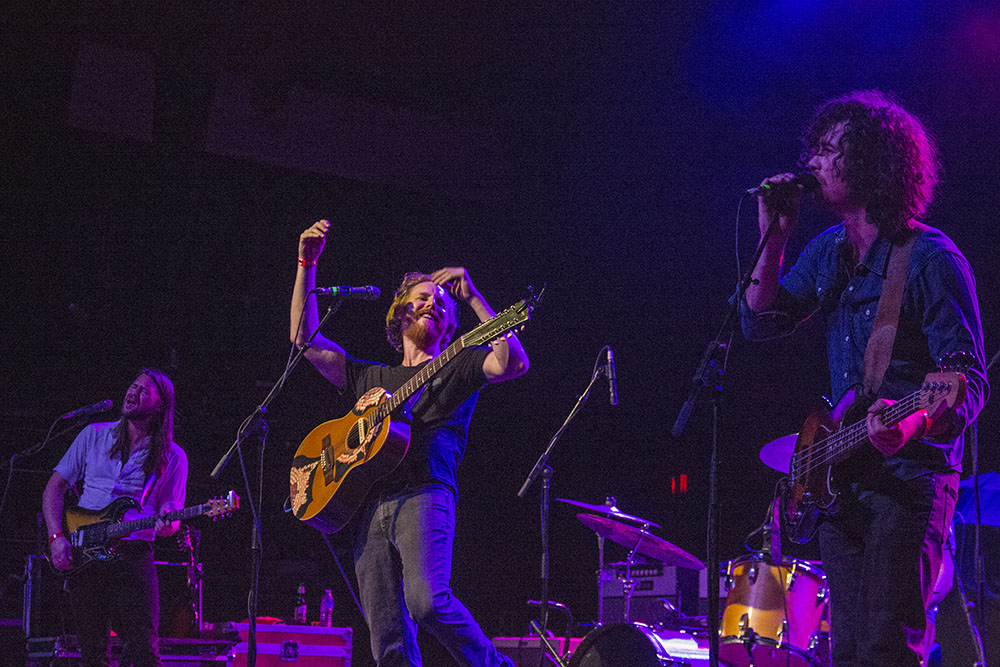
Opening with a naked, ranging electric guitar soon replaced by giant, resonating organ chords, dancing mandolin, tintinnabulating keys, and ascendant vocals, “Telluride” closes the album on a reserved note, telling the story of a man searching for solitude in a musical setting that mirrors the peaks of his mountaintop refuge:
Man, don’t bring me down tonight.
Man, don’t bring me down tonight.
Why would you bring that up?
It just ain’t right
In Telluride.
I came here to leave it behind.
I came up here to leave it all behind.
I climbed so high
To clear my mind
In Telluride.

Brian Roberts, who has helmed the Ha Ha Tonka ship through five albums and thousands of road miles, reaches out to a fan at the close of their show at The Cave in Big Bear, California, 4/1/17. Photo by Jason D. 'Diesel' Hamad/No Surf Music.
Given Roberts’ tendency toward examining the various stages of life, it is not unexpected that Heart-Shaped Mountain is Ha Ha Tonka’s most mature work, examining a broad spectrum of emotion and utilizing the band’s copious and varied musical talents to full effect. But even as they’ve grown—tighter, more complex, and in literal number—both their live performances and this album demonstrate that they retain every bit of the vigor that first made them so enthralling.
tldr: Buy Heart-Shaped Mountain and get your ass to a Ha Ha Tonka show posthaste. You’re welcome.
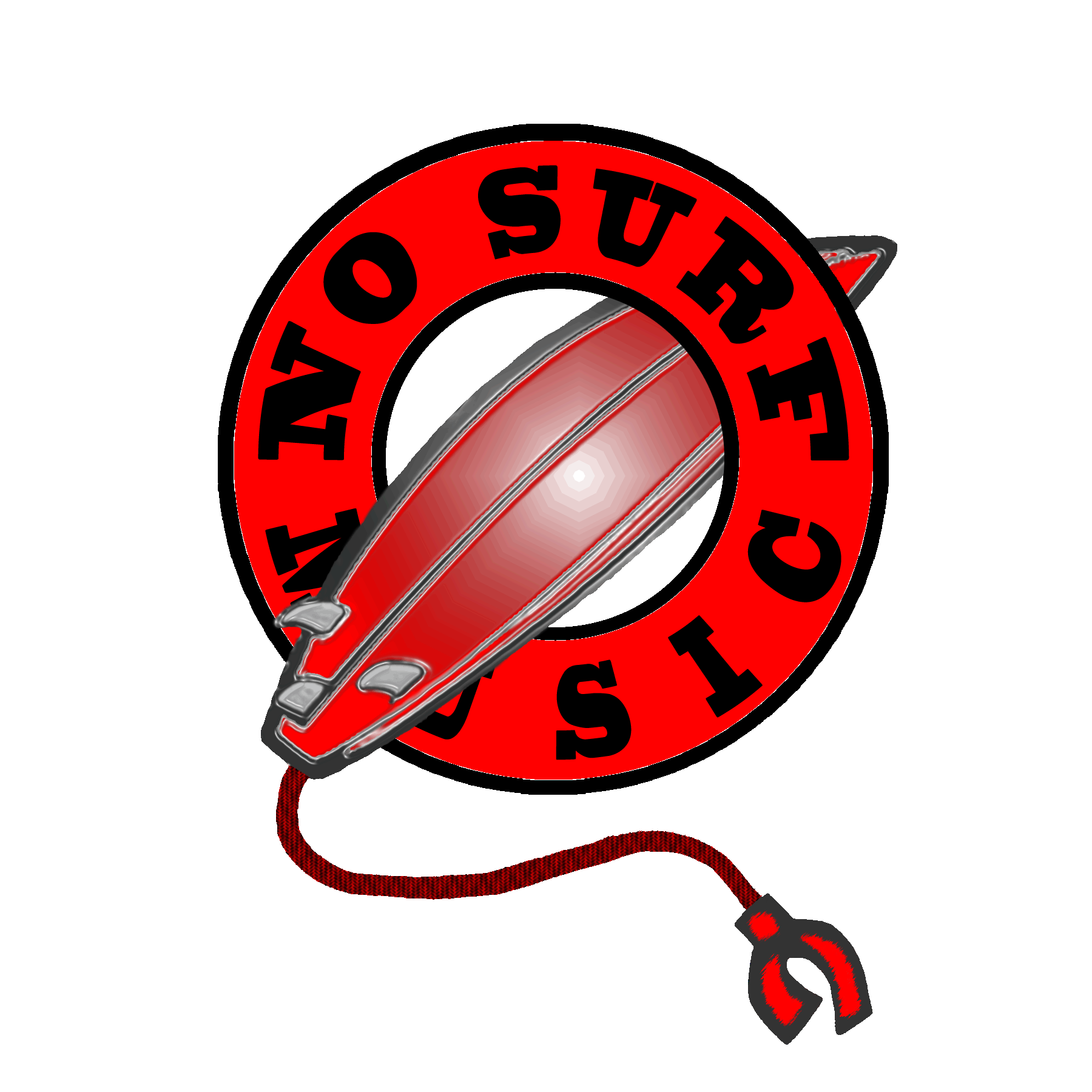
Originally published by No Surf Music





Comments ()